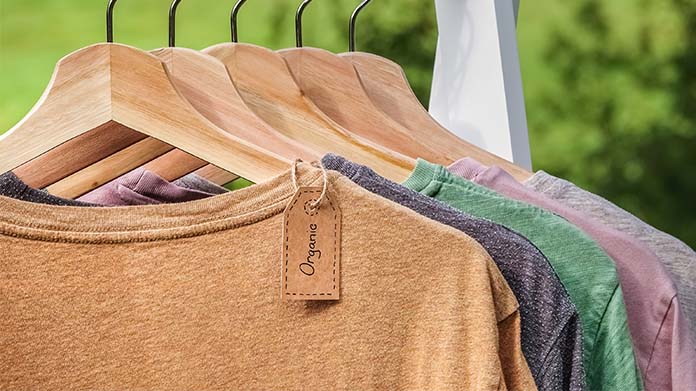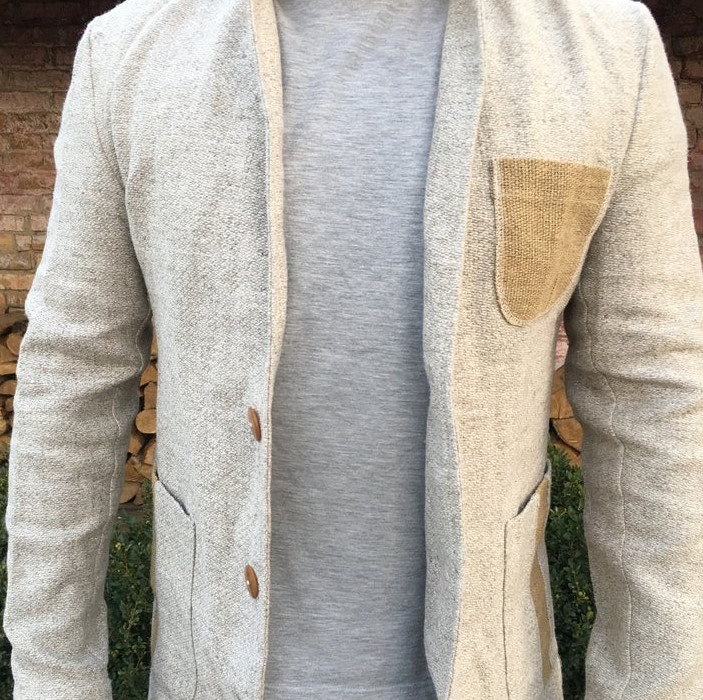New Advice To Picking Bamboo Clothes
Wiki Article
Why Is Hemp So Durable And Durable? Is It Also More Regenerable?
Hemp is frequently regarded as more biodegradable, long-lasting, and regenerative than cotton due to its natural properties and the way it is grown. Here's why- Biodegradability-
Natural Fiber - Hemp is the natural plant fibre which is biodegradable. Clothing and textiles from hemp naturally break down when they are discarded. They then return to the earth, without leaving permanent leftovers. Contrast this with synthetic fibers, like polyester which take many years to decompose.
Hemp fabrics are typically free of synthetic additives or treatments that inhibit biodegradability. In contrast, some cotton textiles are treated with synthetic chemicals, such as specific dyes or finishes which can slow down the biodegradation process.
Durability-
Hemp fibers can be distinguished by their durability and strength. Hemp textiles, clothing, and other items are more durable than cotton. The durability of hemp clothing allows it to withstand many more washing cycles and wear cycles, without showing signs of degradation.
Hemp fabric is more resistant to pilling than cotton. This feature contributes greatly to the quality and durability of hemp fabric.
Regenerative Agriculture-
Soil Health Hemp cultivating can be a regenerative practice when it's done sustainably. Hemp cultivation that is sustainable has a deep-rooted system that helps to prevent soil compaction. This system of roots assists in preventing erosion. This regenerative quality will make the soil better suitable for future cropping.
Low environmental impact - Sustainable hemp farming methods make use of fewer herbicides and pesticides which minimizes the damage to the environment. In contrast, traditional cotton farming could result in degrading soils and water pollution because of its dependence on synthetic chemicals.
Water Efficiency-
Hemp typically requires less water to grow than cotton. Its drought-resistant properties mean it thrives even without irrigation or in rain-fed environments. This makes it an excellent option for regions with only a limited supply of water.
Crop Rotation Hemp is a good choice to incorporate in crop rotation systems that improve the overall health of soils and decrease the chance of soil loss and the buildup of disease. Cotton farming isn't as prone to the effects of crop rotation.
Hemp is a flexible material that can be applied to a number of different products including building materials, clothes, textiles, and even paper. Hemp is a versatile crop that can be utilized to support a variety of industries by using environmentally sustainable and regenerative techniques.
While hemp is a great product with many benefits, it is important to remember that hemp and cotton could both be produced in a sustainable or unsustainable way, depending on the methods of farming and processing. Selecting hemp products that were made using eco-friendly and ethical methods will increase its environmental advantages. Also, using organic cotton can help alleviate some of the environmental concerns associated with conventional cotton production. Take a look at the top rated koraoutdoor.com outdoor clothing for site tips including t shirt hemp, hemp clothing wholesale, wholesale hemp fabric, hemp coat, hemp swimsuit, hemp trousers, hemp wear, patagonia hemp vest, hemp long sleeve shirt, hemp trousers and more.

How Is Hemp Clothing Better In Terms Of Performance And Technology Than Traditional Fibres.
Hemp clothing is an eco-friendly option that offers many functional and technical benefits over conventional fibers. Hemp clothing is an ideal alternative to go green because it's dry and breathable.
Hemp fibers are highly water- and breathable, making hemp clothing comfortable under a variety of conditions. They help wick the moisture away from your body. This can keep you cool and dry and minimize the risk of smells and bacteria.
Temperature Regulation
Hemp clothing is extremely thermoregulating properties. It will keep you warm during cool temperatures by capturing body heat in close proximity and helps to keep cool in hot temperatures when moisture and heat are allowed to go away. The natural regulation of temperature can reduce the requirement to change your clothes.
Durability and Longevity
Hemp fibers have earned a reputation for their durability. Hemp clothing is known to be stronger, resistant to wear, and durable than some traditional fibers. It means that hemp clothing will last longer. They can also decrease the frequency at which you'll need to change them out, which has an adverse impact on the environmental.
UV Protection
Hemp fibers are a natural source of UV protection, protecting the skin from damaging UV radiation. This attribute is especially beneficial for outdoor activities.
Biodegradability:
Hemp clothes degrade naturally over time. This feature reduces the environmental burden of textile waste, as opposed to synthetic fibers which can remain in landfills for extended periods.
Low Environmental Impact
Hemp is usually grown using less herbicides, pesticides and synthetic fertilizers than cotton. It is also environmentally green since it uses less. This green aspect is further amplified by organic farming.
Carbon Sequestration
Hemp plants are able to capture carbon dioxide in the atmosphere when they expand. The cultivation of hemp acts as a carbon sink and aids in reducing the level of greenhouse gases.
The Sustainable Future and Crop Rotation
Hemp can also be added to crop rotation systems. This helps improve the health of soils while reducing the likelihood of developing diseases and soil loss. The environmental benefits of hemp are enhanced by this sustainable farming technique.
Versatility:
Hemp fibers can be blended with other substances (such organic cotton or recycled polyester) to create eco-friendly and high performance fabric blends. This versatility allows for the development of innovative and sustainable textiles.
Low Toxicity
Hemp fibers are low in toxicity and don't require a lot of chemical processing during production, which reduces the environmental impact of textile production.
While hemp provides many environmentally friendly and practical advantages, the sustainability of clothing is also affected by other factors like the process of dyeing and transportation. Additionally, it is impacted by ethical labor practices. Consumers who want to make eco-friendly choices must choose brands of clothing that make use of hemp and other sustainable fibers, and should prioritize transparency and ethical manufacturing practices. Read the recommended hemp clothes hints for site recommendations including hemp jeans, hemp sweatshirt, patagonia hemp overalls, patagonia double knee pants, 100 hemp clothing, jungmaven t shirt, organic hemp fabric, hemp trousers, hemp wear, hemp fabric clothing and more.

What are the main differences between hemp and bamboo fibers
The two fibers from plants, hemp and Bamboo are used in the production of textiles Each has its distinct characteristics and properties. Below are the key differences between bamboo and hemp fibers. Plant Source-
Hemp- Hemp is derived from hemp stalks. Particularly the outer basts. Hemp is a multi-faceted and rapidly-growing plant, has been grown throughout the ages in various ways.
Bamboo Fibers- Bamboo fibers come from the pulp. Bamboo is a grass that grows quickly and is known for its sustainability.
2. Fiber Characteristics
Hemp- Hemp fibers are known for their strength and durability. They are a natural fiber that soften and become softer after washing, making them ideal for making durable textiles.
Bamboo fibers are silky and soft. They can be more fragile and less robust than hemp fibers, but are still valued because of the softness they offer against skin.
3. Texture and Feeling-
Hemp fabric is a bit rough and has a textured feeling. This is evident in its natural state. While it can be a comfortable fabric, the texture is distinct from bamboo.
Bamboo fabric is silky smooth and luxuriously supple. It's often described as being a mix of silk and cotton, which makes it extremely comfortable to wear.
4. Breathability, Moisture Wicking, and Breathability-
Hemp- Hemp is naturally breathable. It also absorbs water. They can help keep your body dry and cool in hot conditions.
Bamboo is also extremely breathable, and it wicks away moisture. They have micro-gaps in them, which enhance their ability to regulate temperature and humidity. This keeps you comfortable in different environments.
5. Environmental Impact-
Hemp Hemp is a type of fiber that is considered to be eco-friendly due its requirement for very little water, grows rapidly, and has a high resistance to insects. It also decreases pesticide and herbicide use. Hemp can also eliminate carbon dioxide from the air as it expands.
Bamboo is a well-known choice for environmentally friendly building materials. It is very robust, it grows quickly and needs only a tiny amount of water. Moso is one of the bamboo varieties that is most sustainable.
6. Processing-
Hemp- Hemp fibers require extensive processing to separate the outer bast fibers and the woody core. The process may involve retting or decortication.
Bamboo The bamboo fibers are extracted using a chemical known as the viscose or rayon process. Bamboo pulp is then broken down with chemicals. When not properly managed the process can be detrimental to the natural environment. Some bamboo fabrics utilize closed loop systems in order to reduce waste.
7. Versatility-
Hemp- Hemp can be used to create a range of products, including clothes papers, textiles and building materials.
Bamboo Fibers- Bamboo fibers have been used in clothing, textiles and other products.
Summary- Both hemp and Bamboo have distinct advantages and are sustainable. The choice you make is based on your preference for the environment, and also what you want in terms of particular characteristics and properties. Take a look at the best bamboo clothes for blog examples including bamboo clothing for women, bamboo tee shirts women, boody bamboo underwear, bamboo brand jeans, bamboo sun hoody, ladies bamboo t shirts, womens bamboo t shirts, bamboo infant clothing, freefly hoodie, bamboo hawaiian shirts and more.
